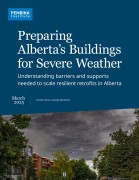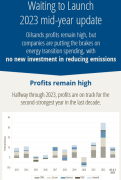This report examines the trends in gambling in Alberta, particularly problem gambling, from 1961 to 1999. It explains how we derived the index that was earlier published in Sustainability Trends 2000: The Genuine Progress Statement for Alberta, 1961 to 1999.
Gambling in the GPI accounting system is considered as a regrettable cost to human health and social capital. Although such activities contribute to economic growth (GDP), they often lead to the degradation of quality of life and genuine well-being of households and communities. GDP and national accounts do not distinguish between expenditures that contribute to genuine progress and improved quality of life and those that detract from it. This report examines the full costs associated with gambling in terms of the estimated monetary losses of problem gamblers, who represented nearly five percent of Alberta's adult population in 1999. Gambling opportunities have exploded in Alberta, particularly with Government licensing of video lottery terminals and casinos. Gambling can be highly addictive, leading to real costs to family well-being, financial stress, direct health costs, the cost of law enforcement, corrections and the loss to labour productivity. This report and the GPI accounting system attempt to measure these impacts in a more holistic way than GDP accounting. The incidence of gambling is used, with other indicators, as a proxy for the health of communities and households. This report is a first step toward a more complete and holistic full impact analysis of gambling on household and societal well-being.








